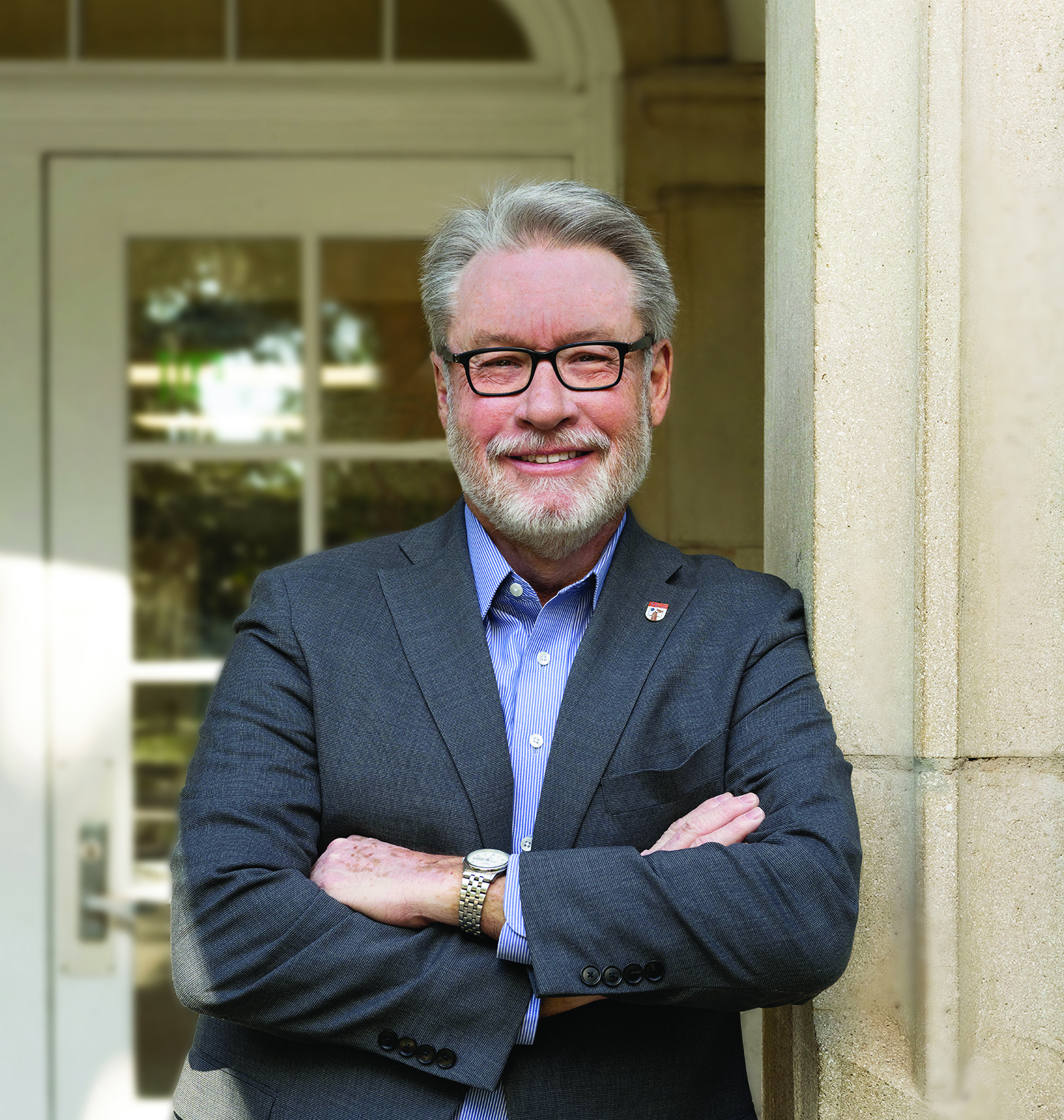
UF celebrates Richardson’s 10 years leading CLAS, looks ahead to Interim Dean Watt
David Richardson, dean of the University of Florida’s College of Liberal Arts and Sciences, is stepping down after a decade at the helm of UF’s largest college, effective June 30. Mary Watt, currently associate dean for CLAS, will then assume the role of interim dean.
“Dave is a passionate educator," said UF President Sasse. “Education isn’t a job to Dave – it’s a vocation. He cares about our students, about our faculty, and about the pursuit of knowledge and beauty.”
Richardson will return to the chemistry department to continue his research and teaching.
"Dean Richardson provided steady leadership of UF’s largest college for a decade. He championed the liberal arts and sciences as the backbone of a complete education,” UF Provost Scott Angle said. “This foundation positions UF to continue producing graduates with the timeless critical thinking skills they’ll need to thrive in an unpredictable future.”
Richardson reflected on his time as dean and credited faculty for their great work.
“A liberal education is about the liberty to live, learn, speak, and work in a free society. We must protect freedom through knowledge,” Richardson said. “In the last decade, I have congratulated tens of thousands of our graduates on their bachelor’s, master’s, and doctoral degrees in graduation ceremonies. Those milestones are the culmination of the professional work of our outstanding CLAS faculty and have brought great joy to our graduates’ families.”
Richardson, who also serves as a professor in the department of chemistry, has worked at UF for more than 40 years. He was named interim dean of CLAS in July 2014, and became dean the following year.
In 2013, after several years of budgetary restraint brought on by the recession of 2008, the number of CLAS faculty had slipped to 647. Since Richardson became interim dean, the college has hired 48% (367) of its current faculty members.
Richardson also developed the Beyond120 program to centralize and organize experiential education in CLAS that goes beyond the 120 credit hours needed to graduate. He also created the CLAS Dean's Medal for graduating CLAS students to provide recognition for graduates based on breadth of curriculum, experiential education, and academic risk-taking rather than grade point average.
Richardson received his Ph.D. in chemistry from Stanford University in 1981 and was an NIH postdoctoral associate at Stanford and MIT.
Sasse said Watt is well suited for the responsibilities of leading CLAS.
“Mary Watt will be an exceptional leader,” said Sasse. “Mary believes in the power and purpose of a liberal arts education that both enriches and prepares students. She’s student-focused, forward-thinking, and committed to the life-changing mission of well-rounded liberal education.”
Watt, who holds a master’s degree and a doctorate in Italian studies as well as a law degree, all from the University of Toronto, has served as associate dean since 2016. She started at UF as an assistant professor of Italian studies in 2000 and was chair of the Department of Languages, Literatures and Cultures from 2010 to 2015. Prior to her career in academia, Watt worked as counsel to the Immigration and Refugee Board of Canada, and as legal advisor to the United Nations High Commissioner for Refugees (UNHCR) during the Haitian Refugee crisis in 1994.
"Mary Watt is an experienced teacher, researcher and writer,” Angle said. “The college Is in excellent hands as the next chapter of CLAS is written. I appreciate Mary's willingness to step up as interim dean during this period of transition."
“I am honored to take on this enormous responsibility to so many stakeholders,” said Watt. “I am committed to carrying on the important work we do, not only for our students, but also for the people of the great state of Florida.”
